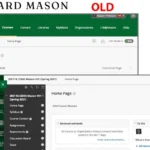Introduction to living in perpetual denial
Have you ever found yourself avoiding the truth? Maybe you’ve brushed aside feelings or circumstances that are too uncomfortable to face. Living in perpetual denial can feel like a safe haven, a way to dodge the harsh realities of life. Yet, this seemingly protective wall often turns into a prison, trapping us in unproductive patterns and unhealthy behaviors.
We all experience denial at some point, but when it becomes a constant state of being, it hinders our growth and happiness. It’s time to bring awareness to this cycle and break free from its grip. Let’s explore what living in perpetual denial really means and how we can reclaim our authentic selves by facing reality head-on.
ALSO READ: Memento Mori Memento Vivere: Embracing Life and Death
What is Denial?
Denial is a defense mechanism that shields us from uncomfortable truths. It acts as a buffer against distressing emotions or situations we prefer to ignore.
When faced with reality, denial allows individuals to compartmentalize their feelings. This temporary escape can feel like an easy way out, but it’s often deceptive.
People might deny the severity of a problem—be it health issues, relationship struggles, or even financial troubles. The mind cleverly creates alternatives that seem more palatable than facing hard facts.
Yet, while denial offers short-term relief, it can lead to long-term consequences. Ignoring the truth doesn’t make it disappear; instead, it festers beneath the surface until one day it demands attention and resolution.
Understanding denial is essential for personal growth. Recognizing its presence opens the door to confronting painful realities and embarking on a journey toward healing and self-acceptance.
The Negative Effects of living in perpetual denial
Living in perpetual denial can have a profound impact on mental health. It often leads to increased anxiety and stress. When we refuse to acknowledge reality, our minds become burdened with unresolved issues.
Relationships suffer too. Friends and family may feel frustrated or disconnected when one person is unwilling to face the truth. This rift can create an emotional distance that’s hard to bridge.
Physical health can also take a hit. Denial might lead individuals to neglect important self-care routines, such as regular check-ups or exercise. Ignoring warning signs of illness or distress only exacerbates problems over time.
Moreover, living in this state stunts personal growth. Without confronting challenges head-on, opportunities for learning and resilience slip away unnoticed. Embracing change becomes daunting, trapping individuals in cycles of fear and avoidance instead of progress and fulfillment.
How to Recognize When You’re in Denial?
Recognizing denial can be tricky. It often disguises itself as comfort or avoidance.
Pay attention to your thoughts. If you find yourself consistently dismissing uncomfortable feelings, that’s a red flag. Maybe you downplay issues in your life or rationalize away problems.
Look at your relationships too. Are you ignoring patterns that cause conflict? Denial can lead to repeated cycles of hurt and misunderstanding.
Physical signs matter as well. Stress-related symptoms like headaches or insomnia might indicate something deeper is being ignored.
Also, ask yourself about the stories you tell others—or even yourself. Are they optimistic but unrealistic? This could signal an unwillingness to face hard truths.
Listen closely during conversations too; if you’re defensive when discussing certain topics, it may suggest underlying denial waiting to be acknowledged.
Steps to Breaking Free from Denial
Breaking free from denial begins with self-awareness. Acknowledge your feelings and thoughts, even when they are uncomfortable. This first step can be challenging but it’s essential for growth.
Next, challenge your beliefs. Ask yourself if the narratives you’ve built around certain situations hold true. Questioning these stories can unveil hidden truths about your reality.
Consider journaling as a tool to explore your emotions deeper. Writing helps in processing complex feelings that might otherwise remain buried.
It’s also helpful to set small, achievable goals related to facing the truth in specific areas of life. Celebrate each accomplishment, no matter how minor it seems.
Practice patience with yourself during this journey. Change takes time and effort; give yourself grace as you navigate through shifting perspectives and confronting long-held notions.
Embracing the Truth and Facing Reality
Embracing the truth means stepping into a space of clarity. It’s about shedding layers of falsehoods and confronting what truly exists in your life.
Facing reality can initially feel overwhelming. The comfort of denial often lingers, pulling you back into familiar shadows. Yet, recognizing this struggle is part of the journey.
When you confront your truths, new perspectives emerge. You start to see opportunities where there were once roadblocks. This shift opens doors to personal growth and resilience.
Living authentically requires bravery. It demands vulnerability but rewards you with genuine connections and experiences that enrich your life.
Allowing yourself to face difficult emotions creates room for healing. Emotions are valid; they guide you through understanding your situation better.
Choosing truth over illusion doesn’t erase challenges but equips you with tools to navigate them effectively. Each step toward acceptance strengthens your ability to thrive in an imperfect world.
Finding Support and Seeking Help
Finding support can be a game-changer when breaking free from denial. Surrounding yourself with understanding friends and family creates a safe space for honest conversations. They can offer valuable perspectives you might not see.
Alternatively, consider joining support groups or online communities where others share similar experiences. Connecting with people who understand your journey fosters empathy and encouragement.
Professional help is another crucial avenue to explore. Therapists and counselors are trained to guide individuals through emotional struggles, providing tools to confront reality without judgment.
Don’t shy away from seeking out resources like books or workshops focused on personal growth. These can provide insights that resonate deeply and inspire change.
Remember, reaching out is not a sign of weakness; it’s an important step toward living authentically. Embracing the strength in vulnerability propels you forward on this transformative path.
Conclusion: Living a Fulfilling and Authentic Life Outside of Denial
Breaking free from living in perpetual denial opens the door to a more fulfilling and authentic life. When you confront your truths, you leave behind the heavy burden of avoidance. Embracing reality allows for personal growth and deeper connections with others.
Living authentically means acknowledging your feelings, thoughts, and circumstances. It’s about accepting imperfections—both yours and those of the world around you. You begin to see opportunities where once there were obstacles.
Support plays a key role in this journey. Seeking help from friends or professionals can provide guidance and encouragement as you navigate through challenges. Surrounding yourself with empathetic individuals fosters an environment conducive to healing.
As you shed denial, you’ll find clarity replaces confusion. Your relationships will deepen, self-esteem will rise, and life will take on new meaning. Living truthfully isn’t always easy; it requires courage but leads to genuine happiness.
Make a choice today to step into authenticity—the rewards are profound.
ALSO READ: Prayer for Healing and Strength: Trust in God’s Power
FAQs
What is “living in perpetual denial”?
Living in perpetual denial refers to consistently avoiding or rejecting the truth about difficult situations or emotions, leading to an unproductive and unhealthy cycle.
How can I recognize when I’m in denial?
Signs of denial include dismissing uncomfortable feelings, ignoring harmful behaviors, avoiding difficult conversations, and experiencing stress-related physical symptoms.
What are the consequences of living in denial?
Living in denial can lead to anxiety, strained relationships, health issues, and stunted personal growth, as unresolved problems continue to build over time.
How can I break free from denial?
Breaking free begins with self-awareness, questioning false narratives, setting small goals, journaling, and practicing patience as you confront the truth.
How can I find support while overcoming denial?
Seek support from understanding friends, support groups, or professional counselors to guide you through confronting reality and embracing personal growth.











